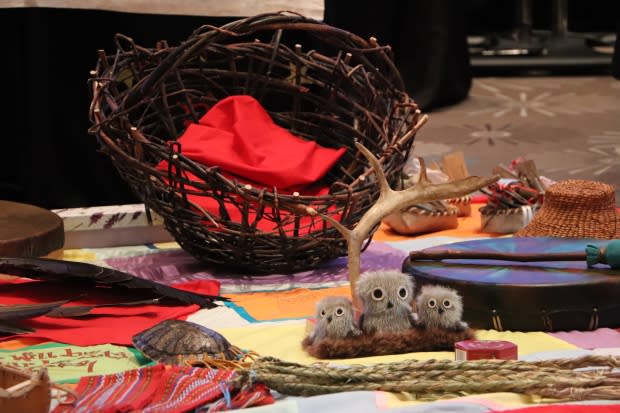Mohawk rights activist Ellen Gabriel to close out MMIWG inquiry in Quebec City
The testimony of Mohawk activist Ellen Gabriel will mark the last day of the Quebec City hearings of the national inquiry into missing and murdered Indigenous women and girls.
Gabriel, an artist from Kanesatake and former president of Quebec Native Women, became a spokesperson for Mohawk protesters during the 1990 Oka Crisis — the 78-day standoff between Mohawks, the Sûréte du Québec and the Canadian military over the town of Oka's plan to expand a municipal golf course on contested land.

In the 28 years since, Gabriel has been a vocal advocate for the collective and individual rights of Indigenous people.
This week's hearings featured expert panels and advocacy groups, focusing on policing, the justice system and the incarceration of Indigenous women and men.
Yesterday, a professor from Université Laval suggested the need for a complete overhaul of the federal justice system, which is "imposing a white institution on Indigenous people without their consent."
Throughout the week, witnesses detailed how systemic racism continues to impact the lives of Indigenous women in Canada.

"The long-term effects of colonization and intergenerational trauma contribute to women being missing, murdered or incarcerated," said Kassandra Churcher, the executive director of the Canadian Association of Elizabeth Fry Societies.
Commissioners also expressed their regrets this week about having to write their report without having heard directly from incarcerated women, because of the government's refusal to extend the inquiry, as they had requested.
The inquiry will move on to Winnipeg, Man., and St. John's, N.L., in October.

